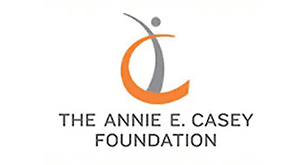A new learning community, hosted by the National SOGIE (Sexual Orientation, Gender Identity and Expression) Center and the National Association of State Mental Health Program Directors, focuses on the safe and effective collection of sexual orientation and gender identity data. … Read More
Interdisciplinary


2023/2024 Prevention Resource Guide
Child Abuse Prevention Month and Year-round Guidance Access the 2023/2024 Prevention Resource Guide any time online! Explore the innovative strategies that champion inclusivity, tackle racial equity, and address systemic factors affecting families. Read about the impacts organizations across the nation … Read More

Spotlight On Youth Mentoring
WHAT IS MENTORING AND WHY DOES IT MATTER? Mentoring involves a supportive, caring relationship between an adult and a young person, either established formally through a program or occurring naturally such as with a neighbor or coach. Formal mentoring relationships may be offered through … Read More

The Influence Of Early-life Adversity On The Coupling of Structural and Functional Brain Connectivity Across Childhood
Exposure to early-life adversity (ELA) is a risk factor for behavioral and emotional problems in childhood as well as long-term health consequences. Neuroimaging studies provide a wealth of evidence for the association of perinatal adversity with neurodevelopmental outcomes. These findings … Read More

Latino Grandfamilies: Helping Latino Children Thrive Through Connection To Culture And Family
Toolkit Introduction About 2.7 million children live in grandfamilies or kinship care, families in which children are being raised by grandparents, other extended family members, and adults with whom they have a close family-like relationship such as godparents. According to … Read More

The Core Characteristics Of Generation Z
Generation Z has emerged as a population increasingly worthy of attention, especially now as its older members are in their 20s and have become a politically engaged force in recent elections. Born after 1996, Generation Zers made up one-tenth of the 2020 electorate and have added 8.3 million newly … Read More

McGirt v Oklahoma and What Clinicians Should Know About Present-Day Child Abuse and Legacies of Forced Migration
In 1997, Jimcy McGirt was convicted by the State of Oklahoma for sex crimes against a minor. McGirt appealed his conviction, citing that Oklahoma lacked jurisdiction over the case due to his tribal citizenship, since the crime took place on … Read More

Key Updates to Understanding Roles of Childhood Trauma in Overall Health
While adverse childhood experiences and trauma, including childhood abuse and neglect, have often been viewed from the lens of psychiatry, their influence on physical health, health behaviors, and factors that moderate health now garner more attention. This article reviews recent … Read More

How Should Clinicians and Students Cope With Secondary Trauma When Caring for Children Traumatized by Abuse or Neglect?
When health care professionals encounter child abuse and neglect, they can experience a range of emotions, such as anger, sadness, and frustration. Such feelings can cloud judgment, compromise care, or even undermine one’s capacity to complete evaluation of a child. … Read More

How Should Race and Resource Context Influence How Neglect Is Considered by Clinicians?
Separation of children from their parents is one possible traumatizing consequence of a mandated report, which is not to be taken lightly. This commentary on a case considers how racism and poverty should influence clinicians’ construal of their duties as … Read More
